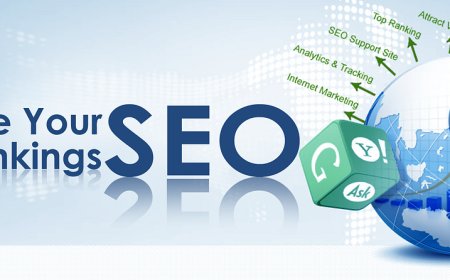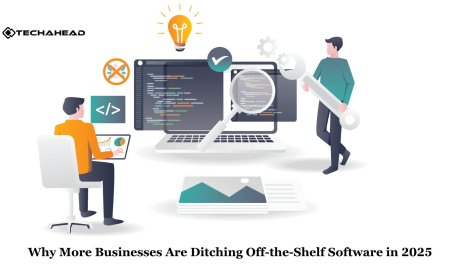Cybersecurity or Artificial Intelligence: Which Tech Career Suits You?
Explore a detailed comparison of Cybersecurity and AI careers from skills, roles, growth trends, and future potential, to help you choose the right tech path.

Cybersecurity and Artificial Intelligence (AI) are two fields that most strongly define the trend of technology in a world that is becoming transformed by technology to reshape economies, governance, and everyday life. Not only are these career tracks well-paid and recruitable, but they are also down to the very core of the digital future. Worldwide cybersecurity expenditures will exceed the 212-billion mark by the year 2025, as per Gartner, and AI processes are bound to increase eight times, as per the Business Value Institute of IBM.
These numbers not only represent growth; they indicate a digital world that is experiencing tremendous change and becoming highly vulnerable. Whereas the careers in AI are concerned with the construction of intelligent systems by optimizing and automating them, the careers in Cybersecurity are invaluable in guarding against the threats to these systems that are increasing in number. The two can be regarded as the two faces of technological evolution: innovation and protection.
1. Focus and Purpose of Each Career Path
The foundation of cybersecurity is defense securitythe idea of guarding networks, gadgets, and information against unauthorized access. It is imperative for the maintenance of trust and continuity in digital systems.
AI, in turn, is concerned with development, i.e., training systems to imitate human Intelligence to learn, adapt, and make decisions. AI facilitates mass-scale automation, optimization, and personalization.
Cybersecurity provides the safety of the digital infrastructure, whereas AI changes the way problems are solved and value is created
2. Job Roles and Industry Applications
The professionals of the two fields are exposed to a wide variety of industry options. The simplified comparison of the title and average salary in the U.S. indicates the 2025 Glassdoor stats:
Domain
Job Role
Average Base Salary (US)
Cybersecurity
Cybersecurity Analyst
$95,000/year
Security Architect
$149,722/year
Artificial Intelligence
Machine Learning Engineer
$138,000/year
AI Engineer
$150,000/year
The most common employers of cybersecurity personnel are in finance, defense, healthcare, and government. Some of the areas where AI occurs are technology, retail sales, manufacturing, and autonomous systems.
3. Required Skills and Competencies
AI and cybersecurity both call for certain skill sets suited to their primary roles.
The fundamental abilities required to excel in each domain are highlighted in the table below.
Cybersecurity Skills
AI Skills
Network defense and intrusion detection
Python, R, or similar programming languages
Vulnerability assessment
Machine learning algorithms and model tuning
Encryption and cryptographic protocols
Data preprocessing and statistical analysis
Regulatory compliance (e.g., GDPR, HIPAA, NIST)
Deep learning frameworks (e.g., TensorFlow, PyTorch)
Security audits and ethical hacking
Natural language processing (NLP) and computer vision
4. Learning Curve and Entry Barriers
Learning curve and the accessibility of the professions of each of the two are among the highly significant aspects to consider when deciding on one or the other career.
The moderate level of the learning curve is associated with cybersecurity. People who are familiar with computer networking, IT support, or systems administration can make such a transition fairly easily. It has a number of entry-level jobs that offer graduate-like tracks, e.g., Security Analyst, or Junior Penetration Tester. Enrolling in a top cybersecurity course or earning a cybersecurity certification can significantly boost employability in these early roles.
The entry barrier in AI is, however, steeper. One usually needs a solid mathematics, programming, and statistical modeling background. Machine learning is one of the core components in any modern AI application; hence, the necessity of being acquainted with it in most entry-level AI jobs. As a newbie, it is recommended to take the best AI course to build a foundation on Python, data preprocessing, and model development before entering the profession.
5. Work Culture and Career Trajectory
The cybersecurity work environment is often organized and procedural. Professionals tend to work in a type of industry that is being regulated, and there will be monitoring processes at all times for policy implementation and emergency management.
The AI work environment is more iterative and explorative. AI professionals are also likely to work in agile teams where the ideas of experimentation, model validation, and design thinking are put to the forefront.
In terms of growth, Cybersecurity professionals can advance to such positions as Security Architect, Chief Information Security Officer (CISO), or Cyber Risk Strategist. AI professionals can be directed toward such positions as AI Architect, Head of AI strategy, or Chief Data Scientist.
6. Long-Term Strategic Relevance
The two areas are highly pertinent to the future of the digital economy. The importance of cybersecurity will also continue as cyberattacks spread and additional systems shift towards cloud computing. AI, in its turn, will transform the business processes, healthcare, finance, education, and even government.
Remarkably, these disciplines are starting to overlap. Even AI models and data pipelines become vulnerable to malicious exploitation, and this crossover between the two fields gave rise to a specialization in AI Security, combining some of the expertise across both areas.
In the years to come, those who can navigate the convergence will be particularly valuable.
Final Thoughts: Aligning Passion with Profession
Selecting between AI and cybersecurity is based on your intellectual interests, goals, and personality rather than which is objectively superior.
You can choose a cybersecurity career if:
- You love protecting digital spaces.
- You like to have the work organized and clearly defined threats.
- You appreciate policy, accuracy, and endurance
Or you may decide on an AI career if:
- You are interested in data-based problem-solving
- You like automatic code and planning algorithms
- You thrive in experimental environments
Both careers are fulfilling, and both are able to serve society. Today, the world is calling for impending opportunities, and you have the choice to think of either protecting systems or creating systems that think. Irrespective of what you want to be doing in the field, the future promises to be extraordinary, just so long as you are willing to master the relevant skills.




































